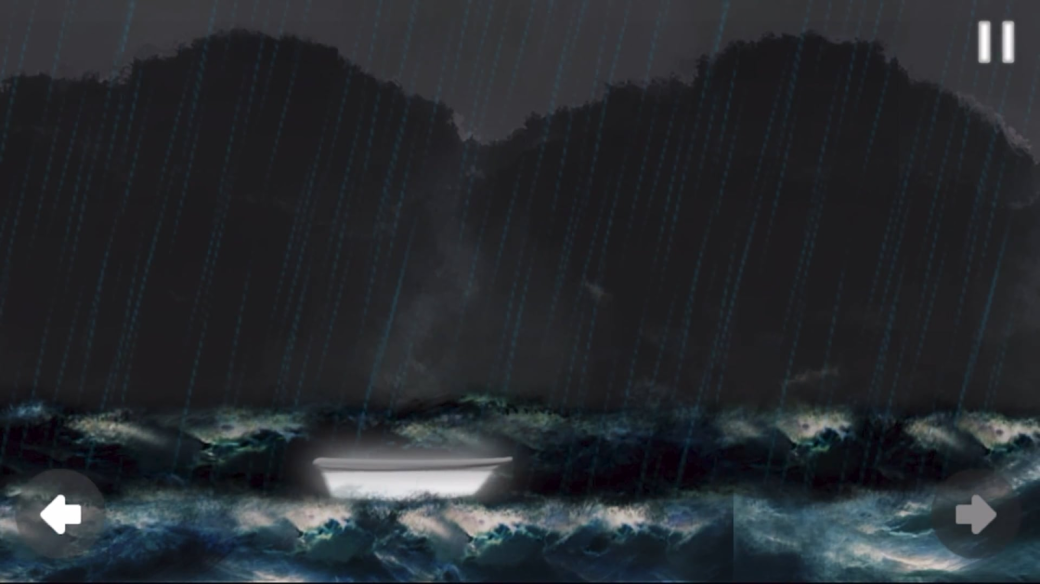Play | Flow | Sea
Ethical and Aesthetic Borders in the Video Game Survival
What do we learn when we play games? Games convey meaning both through sounds and images and through the simulation of processes as encoded in the system of rules and gameplay restrictions. Advocates of the value of ‹serious games› propose that procedurality offers a distinct way of engaging with social issues by representing ‹real world› processes through playable models. Serious games prove to be an attractive medium for educators hoping to make lessons entertaining and for institutions eager to share their messages in interactive forms. Yet, the intent to use a game’s series of rules and challenges to address social issues does not guarantee that these two aspects will not come into conflict in practice.
The footage of Play | Flow | Sea comes from Survival, a serious game published in 2017 by the Spanish studio Omnium Lab in collaboration with the PeaceApp program of the United Nations Alliance of Civilizations. According to the designers’ description, the mobile game allows the player to «live the experience of the migratory tragedy in first person, from the place of origin of the migrant person, until reaching their destination, passing through extortion by mafias or crossing the Mediterranean by boat.» Omnium Lab reportedly held workshops with young refugees to learn about their stories in the process of building the video game. Using this mobile game as a case study, the video essay interrogates the limits of makers’ intentions in creating serious games about people in life and death situations.
Play | Flow | Sea consists of repeated playthroughs of a single level in Survival. Throughout the level, the player controls a small boat with the forward and backward keys to move it across a series of waves. There are no human avatars in the level but the player can hear the sounds of rain falling and waves crashing as well as a pulsating beat-heavy song. By controlling the speed of the boat, the player collects silver coins that produce a twinkling sound along the way all while avoiding capsizing the boat. When played while wearing headphones, the game’s sonic elements successfully produce a state of ‹flow,› wherein absorption in the game’s tasks allow players to put aside all elements irrelevant to the task at hand — including, perhaps, the social issues purportedly addressed in the game.
Over the course of ten attempts at finishing the game level, this video essay brings up questions regarding how sensory perceptions and political commitments clash when playing a serious game: What does it mean to play as migrants on a boat crossing the Mediterranean Sea? How does a ‹flow state› elide ethical and political considerations, and what is at stake in disrupting it? What is the value of death when it is repeatable and inexhaustible? What do we learn when we thwart the aesthetics of a serious game? Engaging in difference through repetition, Play | Flow | Sea ultimately asks us to envision alternative forms of play — and to consider the potentials of its refusal.
Bevorzugte Zitationsweise
Die Open-Access-Veröffentlichung erfolgt unter der Creative Commons-Lizenz CC BY-SA 4.0 DE.
